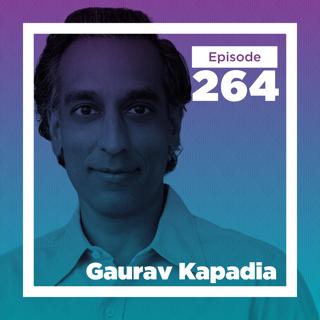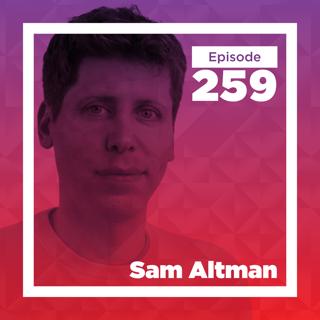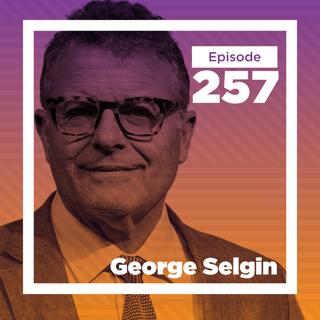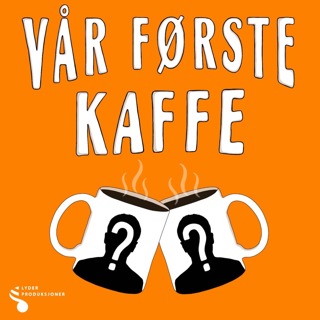
Gaurav Kapadia on New York City, Investing, and Contemporary Art
Help us keep the conversations going in 2026. Donate to Conversations with Tyler today. Gaurav Kapadia has deliberately avoided publicity throughout his career in investing, which makes this conversation a rare window into how he thinks. He now runs XN, a firm built around concentrated bets on a small number of companies with long holding periods. However, his education in judgment began much earlier, in a two-family house in Flushing that his parents converted into a four-family house. It was there where a young Gaurav served as de facto landlord, collecting rent and negotiating late payments at age 10. That grounding now expresses itself across an unusual range of domains: Tyler invited him on the show not just as an investor, but as someone with a rare ability to judge quality in cities, talent, art, and more with equal fluency. Tyler and Gaurav discuss how Queens has thrived without new infrastructure, what he'd change as "dictator" of Flushing, whether Robert Moses should rise or fall in status, who's the most underrated NYC mayor, what's needed to attract better mayoral candidates, the weirdest place in NYC, why he initially turned down opportunities in investment banking for consulting, bonding with Rishi Sunak over railroads, XN's investment philosophy, maintaining founder energy in investment firms and how he hires to prevent complacency, AI's impact on investing, the differences between New York and London finance, the most common fundraising mistake art museums make, why he collects only American artists within 20 years of his own age, what makes Kara Walker and Rashid Johnson and Salman Toor special, whether buying art makes you a better investor, his new magazine Totei celebrating craft and craftsmanship, and much more. Read a full transcript enhanced with helpful links, or watch the full video on the new dedicated Conversations with Tyler channel. Recorded October 8th, 2025. Other ways to connect Follow us on X and Instagram Follow Tyler on X Follow Gaurav on X Sign up for our newsletter Join our Discord Email us: cowenconvos@mercatus.gmu.edu Learn more about Conversations with Tyler and other Mercatus Center podcasts here. Timestamps 00:00:00 - Intro 00:01:32 - Queens and NYC's geography 00:08:36 - New York City mayors and electoral politics 00:13:22 - Building a career in investing 00:18:50 - XN's investment philosophy 00:24:35 - Maintaining founder energy in investment firms 00:30:45 - The sociology of finance in NYC, London, and UAE 00:32:21 - How AI is reshaping investing 00:36:53 - Museum operations 00:42:21 - Favorite artists 00:50:39 - Tastes in art and how the canon will evolve 00:57:22 - Totei, a new venture
10 Des 59min

Dan Wang on What China and America Can Learn from Each Other
Help us keep the conversations going in 2026. Donate to Conversations with Tyler today. Dan Wang argues that China is a nation of engineers while America is a nation of lawyers, and this distinction explains everything from subway construction to pandemic response to why Chinese citizens will never have yards with dogs. His prescription: America should become 20% more engineering-minded to fix its broken infrastructure, while China needs to be 50% more lawyerly so the Communist Party can stop strangling individual rights and the creative impulses of its people. But would a more lawyerly China constrain state power, or just create new tools for oppression? And aren't the American suburbs actually sterling achievements where the infrastructure works quite well? Tyler and Dan debate whether American infrastructure is actually broken or just differently optimized, why health care spending should reach 35% of GDP, how lawyerly influences shaped East Asian development differently than China, China's lack of a liberal tradition and why it won't democratize like South Korea or Taiwan did, its economic dysfunction despite its manufacturing superstars, Chinese pragmatism and bureaucratic incentives, a 10-day itinerary for Yunnan, James C. Scott's work on Zomia, whether Beijing or Shanghai is the better city, Liu Cixin and why volume one of The Three-Body Problem is the best, why contemporary Chinese music and film have declined under Xi, Chinese marriage markets and what it's like to be elderly in China, the Dan Wang production function, why Stendhal is his favorite novelist and Rossini's Comte Ory moves him, what Dan wants to learn next, whether LLMs will make Tyler's hyper-specific podcast questions obsolete, what flavor of drama their conversation turned out to be, and more. Read a full transcript enhanced with helpful links, or watch the full video on the new dedicated Conversations with Tyler channel. Recorded October 31st, 2025. Other ways to connect Follow us on X and Instagram Follow Tyler on X Follow Dan on X Sign up for our newsletter Join our Discord Email us: cowenconvos@mercatus.gmu.edu Learn more about Conversations with Tyler and other Mercatus Center podcasts here. Timestamps 00:00:00 - American infrastructure and suburban life 00:05:18 - American vs. Chinese infrastructure buildouts... 00:12:25 - And health care investment 00:17:52 - Chinese suburbs 00:20:10 - The existing lawyerly influence in East Asia 00:25:12 - China's lack of a liberal tradition 00:29:35 - Why China's won't democratize 00:33:49 - China's economic disfunction 00:38:44 - China's expansionism 00:41:55 - Chinese pragmatism and bureaucratic incentives 00:46:50 - Chinese cities and regional culture 00:59:44 - James C. Scott, Zomia, and elite culture 01:06:27 - A 10-day Yunnan itinerary 01:11:57 - On Chinese arts, literature, and cultural expression 01:18:23 - The Dan Wang production function 01:30:34 - Tyler's grand strategy, or lack thereof
3 Des 1h 32min

Cass Sunstein on Liberalism and Rights in the Age of AI
Cass Sunstein is one of the most widely cited legal scholars of all time and among the most prolific writers working today. This year alone he has five books out, including Imperfect Oracle on the strengths and limits of AI and On Liberalism: In Defense of Freedom. In his second appearance on the show, he brings his characteristic intellectual range to exploring liberalism's present precariousness and AI's implications for law and speech. Tyler and Cass discuss whether liberalism is self-undermining or simply vulnerable to illiberal forces, the tensions in how a liberal immigration regime would work, whether new generations of liberal thinkers are emerging, if Derek Parfit counts as a liberal, Mill's liberal wokeism, the allure of Mises' "cranky enthusiasm for freedom," whether the central claim of The Road to Serfdom holds up, how to blend indigenous rights with liberal thought, whether AIs should have First Amendment protections, the argument for establishing a right not to be manipulated, better remedies for low-grade libel, whether we should have trials run by AI, how Bob Dylan embodies liberal freedom, Cass' next book about animal rights, and more. Read a full transcript enhanced with helpful links, or watch the full video on the new dedicated Conversations with Tyler channel. Recorded October 10th, 2025. This episode was made possible through the support of the John Templeton Foundation. Other ways to connect Follow us on X and Instagram Follow Tyler on X Follow Cass on X Sign up for our newsletter Join our Discord Email us: cowenconvos@mercatus.gmu.edu Learn more about Conversations with Tyler and other Mercatus Center podcasts here.
26 Nov 1h 19min

Blake Scholl on Supersonic Flight and Fixing Broken Infrastructure - Live at the Progress Conference
Blake Scholl is one of the leading figures working to bring back civilian supersonic flight. As the founder and CEO of Boom Supersonic, he's building a new generation of supersonic aircraft and pushing for the policies needed to make commercial supersonic travel viable again. But he's equally as impressive as someone who thinks systematically about improving dysfunction—whether it's airport design, traffic congestion, or defense procurement—and sees creative solutions to problems everyone else has learned to accept. Tyler and Blake discuss why airport terminals should be underground, why every road needs a toll, what's wrong with how we board planes, the contrasting cultures of Amazon and Groupon, why Concorde and Apollo were impressive tech demos but terrible products, what Ayn Rand understood about supersonic transport in 1957, what's wrong with aerospace manufacturing, his heuristic when confronting evident stupidity, his technique for mastering new domains, how LLMs are revolutionizing regulatory paperwork, and much more. Recorded live at the Progress Conference, hosted by the Roots of Progress Institute. Special thanks to Big Think for the video production. Read a full transcript enhanced with helpful links, or watch the full video on the new dedicated Conversations with Tyler channel. Recorded October 18th, 2025. Other ways to connect Follow us on X and Instagram Follow Tyler on X Follow Blake on X Sign up for our newsletter Join our Discord Email us: cowenconvos@mercatus.gmu.edu Learn more about Conversations with Tyler and other Mercatus Center podcasts here. Photo Credit: Jeremi Rebecca
19 Nov 37min

Donald S. Lopez Jr. on Buddhism
Register for the Austin listener meetup Donald S. Lopez Jr. is among the foremost scholars of Buddhism, whose work consistently distinguishes Buddhist reality from Western fantasy. A professor at the University of Michigan and author of numerous essential books on Buddhist thought and practice, he's spent decades studying Sanskrit and Tibetan texts, including a formative year spent living in a Tibetan monastery in India. His latest book, The Buddha: Biography of a Myth, tackles the formidable challenge of understanding what we can actually know about the historical Buddha. Tyler and Donald discuss the Buddha's 32 bodily marks, whether he died of dysentery, what sets the limits of the Buddha's omniscience, the theological puzzle of sacred power in an atheistic religion, Buddhism's elaborate system of hells and hungry ghosts, how 19th-century European atheists invented the "peaceful" Buddhism we know today, whether the axial age theory holds up, what happened to the Buddha's son Rahula, Buddhism's global decline, the evidently effective succession process for Dalai Lamas, how a guy from New Jersey created the Tibetan Book of the Dead, what makes Zen Buddhism theologically unique, why Thailand is the wealthiest Buddhist country, where to go on a three-week Buddhist pilgrimage, how Donald became a scholar of Buddhism after abandoning his plans to study Shakespeare, his dream of translating Buddhist stories into new dramatic forms, and more. Read a full transcript enhanced with helpful links, or watch the full video on the new dedicated Conversations with Tyler channel. Recorded October 6th, 2025. Other ways to connect Follow us on X and Instagram Follow Tyler on X Sign up for our newsletter Join our Discord Email us: cowenconvos@mercatus.gmu.edu Learn more about Conversations with Tyler and other Mercatus Center podcasts here. This episode was made possible through the support of the John Templeton Foundation.
12 Nov 57min

Sam Altman on Trust, Persuasion, and the Future of Intelligence - Live at the Progress Conference
Register for the Austin listener meetup Sam Altman makes his second appearance on the show to discuss how he's managing OpenAI's explosive growth, what he's learned about hiring hardware people, what makes roon special, how far they are from an AI-driven replacement to Slack, what GPT-6 might enable for scientific research, when we'll see entire divisions of companies run mostly by AI, what he looks for in hires to gauge their AI-resistance, how OpenAI is thinking about commerce, whether GPT-6 will write great poetry, why energy is the binding constraint to chip-building and where it'll come from, his updated plan for how he'd revitalize St. Louis, why he's not worried about teaching normies to use AI, what will happen to the price of healthcare and hosing, his evolving views on freedom of expression, why accidental AI persuasion worries him more than intentional takeover, the question he posed to the Dalai Lama about superintelligence, and more. Recorded live at the Progress Conference, hosted by the Roots of Progress Institute. Special thanks to Big Think for the video production. Read a full transcript enhanced with helpful links, or watch the full video on the new dedicated Conversations with Tyler channel. Recorded October 17th, 2025. Other ways to connect Follow us on X and Instagram Follow Tyler on X Follow Sam on X Sign up for our newsletter Join our Discord Email us: cowenconvos@mercatus.gmu.edu Learn more about Conversations with Tyler and other Mercatus Center podcasts here. Photo Credit: Jeremi Rebecca
5 Nov 54min

Jonny Steinberg on South African Crime and Punishment, the Mandelas' Marriage, and the Post-Apartheid Era
Tyler considers Winnie and Nelson: Portrait of a Marriage one of the best books of the last decade, and its author Jonny Steinberg one of the most underrated writers and thinkers—in North America, at least. Steinberg's particular genius lies in getting uncomfortably close to difficult truths through immersive research—spending 350 hours in police ride-alongs, years studying prison gangs and their century-old oral histories, following a Somali refugee's journey across East Africa—and then rendering what he finds with a novelist's emotional insight. Tyler and Jonny discuss why South African police only feel comfortable responding to domestic violence calls, how to fix policing, the ghettoization of crime, how prison gangs regulate behavior through century-old rituals, how apartheid led to mass incarceration and how it manifested in prisons, why Nelson Mandela never really knew his wife Winnie and the many masks they each wore, what went wrong with the ANC, why the judiciary maintained its independence but not its quality, whether Tyler should buy land in Durban, the art scene in Johannesburg, how COVID gave statism a new lease on life, why the best South African novels may still be ahead, his forthcoming biography of Cecil Rhodes, why English families weren't foolish to move to Rhodesia in the 1920s, where to take an ideal two-week trip around South Africa, and more. Read a full transcript enhanced with helpful links, or watch the full video on the new dedicated Conversations with Tyler channel. Recorded September 29th, 2025. Other ways to connect Follow us on X and Instagram Follow Tyler on X Sign up for our newsletter Join our Discord Email us: cowenconvos@mercatus.gmu.edu Learn more about Conversations with Tyler and other Mercatus Center podcasts here. Timestamps: 00:00:40 – Policing and crime in South Africa 00:11:15 – Prison culture 00:22:04 – Nelson and Winnie Mandela's marriage 00:24:47 – Was Winnie Mandela just a bad person? 00:29:20 – Nelson Mandela's masks 00:32:04 – Mandela's legacy and the ANC 00:36:51 – Reasons for optimism in South Africa 00:50:58 – His forthcoming biography of Cecil Rhodes 00:55:15 – Where to visit in South Africa
28 Okt 52min

George Selgin on the New Deal, Regime Uncertainty, and What Really Ended the Great Depression
George Selgin has spent over four decades thinking about money, banking, and economic history, and Tyler has known him for nearly all of it. Selgin's new book False Dawn: The New Deal and the Promise of Recovery, 1933–1947 examines what the New Deal actually accomplished—and failed to accomplish—in confronting the Great Depression. Tyler and George discuss the surprising lack of fiscal and monetary stimulus in the New Deal, whether revaluing gold was really the best path to economic reflation, how much Glass-Steagall and other individual parts of the New Deal mattered, Keynes' "very sound" advice to Roosevelt, why Hayek's analysis fell short, whether America would've done better with a more concentrated banking sector, how well the quantity theory of money holds up, his vision for a "night watchman" Fed, how many countries should dollarize, whether stablecoins should be allowed to pay interest, his stake in a fractional-reserve Andalusian donkey ownership scheme, why his Spanish vocabulary is particularly strong on plumbing, his ambivalence about the eurozone, what really got America out of the Great Depression, and more. Read a full transcript enhanced with helpful links, or watch the full video on the new dedicated Conversations with Tyler channel. Recorded September 26th, 2025. Other ways to connect Follow us on X and Instagram Follow Tyler on X Follow George on X Sign up for our newsletter Join our Discord Email us: cowenconvos@mercatus.gmu.edu Learn more about Conversations with Tyler and other Mercatus Center podcasts here. Photo Credit: Richie Downs
15 Okt 1h 8min






















